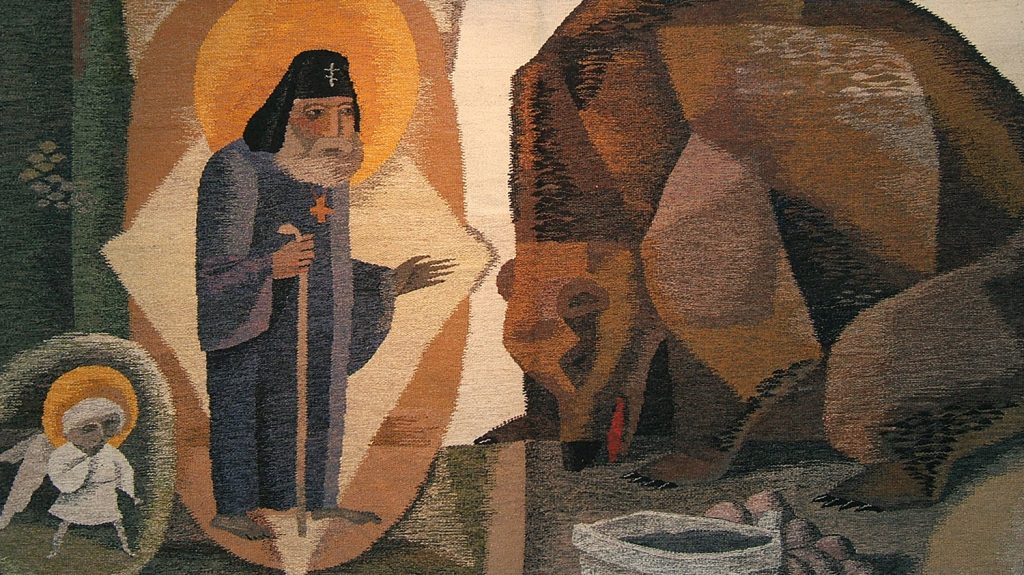Today is the feast of St Seraphim of Sarov, one of the most beloved saints of Russia. Seraphim lived the life of a hermit in the forest of Sarov, was visited by a bear he befriended (above), and prayed for 1,000 consecutive nights, his arms raised and kneeling on an outcrop of rock. Pilgrims flocked to see him in his old age, and no matter what season of the year it was, he greeted them all with the joyful Easter acclamation: ‘Christ is risen!’ He died today in 1833, and despite the attempt by Communist authorities in the 20th century to obliterate his memory, his relics were rediscovered in an anti-religion museum in 1991, and are now a focus of pilgrimage in Sarov.
The Muslim city of Granada surrendered today in 1492, bringing an end to the Emirate of Granada, and a final end to Islamic rule in Spain, after 700 years. The Sultan of Granada, Muhammad XII, surrendered the Alhambra, his beautiful palace and fortress, to the Catholic monarchs Ferdinand and Isabella. Under the terms of the surrender, the Muslims of Granada were to keep their property and their religion, but they were soon told to convert to Christianity or leave the country.
The Victorian writer and hymn writer Sabine Baring-Gould died today in 1924. The author of ‘Onward Christian Soldiers’, which was much loved and trumpeted by the Salvation Army, he also wrote the English lyrics for the Basque Christmas carol, ‘The angel Gabriel from heaven came’, having spent part of his childhood in the Basque country.
Then gentle Mary meekly bowed her head,
‘To me be as it pleaseth God,’ she said,
‘My soul shall laud and magnify his holy name.’
Most highly favoured lady. Gloria!
Sabine Baring-Gould, ‘Gabriel’s Message’
Today in the year 533, Mercury became Pope John II, the first Pope to take a pseudonym, probably because ‘Pope Mercury’ might have sounded a bit odd. The practice didn’t catch on, and Mercury was the last Pope to change his name for four centuries, until medieval Popes understandably felt the need to dissociate the holy office of St Peter from their often dodgy private lives.
St Basil the Great died today in the year 379, which makes this his feast day. Basil is famous as one of the three Cappadocian Fathers (the other two were his younger brother Gregory of Nyssa, and Basil’s friend Gregory of Nazianzus) who contributed hugely to the orthodox understanding of the trinity. Basil wrote an important work, On the Holy Spirit, arguing decisively for the full divinity of the Spirit, who had only merited a single line in the original creed produced by the Council of Nicea.
‘Through the Holy Spirit comes our restoration to paradise, our ascension into the kingdom of heaven, our return to the adoption of sons, our liberty to call God our Father, our being made partakers of the grace of Christ, our being called children of light, our sharing in eternal glory, and, in a word, our being brought into a state of all “fulness of blessing,” both in this world and in the world to come.’ Basil the Great, On the Holy Spirit
Image: Andrew Madekin / CC BY-SA 4.0
